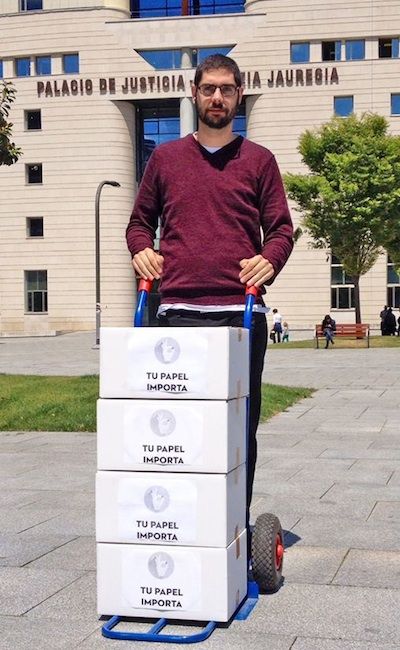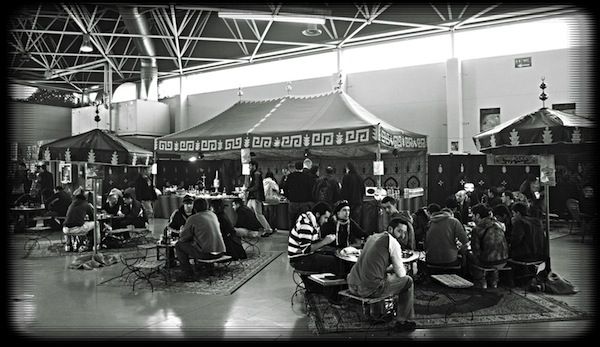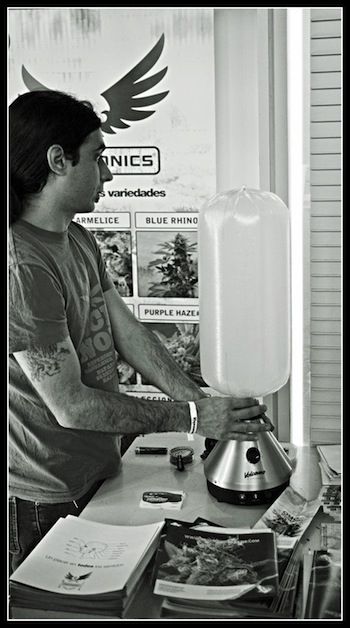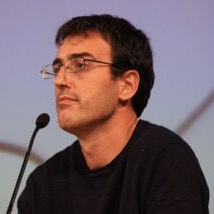- Catalonia, the Basque Country and Navarre are some of the places in Spain that have already begun the debate on the regulation of social cannabis clubs in their city councils and parliaments. Besides negotiation, what matters most to cannabis activists is a solid dialogue. It is time to be heard after ten years of inconclusive debates.

These days, despite the ‘Gag Law’ being prepared by the government of Mariano Rajoy, fully loaded against marijuana use, the debate returns with a vengeance. No wonder since there are around 600 facilities in this category throughout Spain.
Navarre: “We do not have our own law to regulate clubs”
The most recent example is Navarre: its parliament recently accepted the processing of a popular initiative to regulate social cannabis clubs. Of the six groups that participate in the House, only the PP and the UPN have opposed the measure. Furthermore, a report from the House’s legal services decided against considering Navarre as lacking the capacity to regulate in this area, and that the issue could encroach upon state powers.
Ramon Morcillo, general secretary of Cannabis Representation of Navarre (RCN) and promoter of this popular initiative, explained that Navarre enforces the state law “because it does not have one on its own”. But he thinks that it could be regulated at a regional level without any problem.
If this issue proves problematic to reach regularisation of clubs, Navarre activists are considering proposing a law to control the matter internally. For now, the ILP (Popular Legislative Initiative) has six months to collect 5,000 signatures, take them to Parliament and defend the proposal to the groups.

The Basque Country joins the movement
With the goal of reducing the risks derived from marijuana dependency, the City Council of San Sebastian has approved an ordinance to control the creation and management of these entities. That means, as explained by Iker Val, advisor for the Fundación Renovatio, acknowledging the existence of this kind of associations and the emergence of prevention awareness.
But the Basque parliament is also studying how to regulate clubs in general. After three years, the instance has retaken the path to pass a comprehensive cannabis law that regulates this sector in a community that has 77 associations and 100,000 users. The outcome will soon be known.
Val also explains that the Basque government is drafting a new Addictions Law that will specify how to regulate these places. But the real solutions will not arrive – if ever – until 2015.

Catalonia: regulating lack of control
In the wake of San Sebastian, Gerona has become the first Catalan city to pass a new municipal ordinance – rejected by the PP – in this area. The regulation establishes minimum distances between associations and schools or health centres. It also regulates timetables and restricts access to minors.
Catalonia has around 400 clubs of this kind (which represent 40% of facilities nationwide) with more than 165,000 associates. Half of these clubs are located in the city of Barcelona, which has come to be known as ‘the new Amsterdam’ because of the proliferation of this kind of clubs and the draw for marijuana tourism. Therefore, and due to the passiveness of the Generalitat, Barcelona’s Consistory has committed to prepare a regulatory protocol that should be ready before June.
For the same reason, the City Council of Castelldefels has supressed licensing for the installation of these facilities. They are trying to analyse the activity carried out within them in depth, and also work on a regulatory plan. The Generalitat (the regional Government of Catalonia) has already reported in late 2013 about its intention to agree on a regulatory initiative, supported by the Ministry of Health itself, which also considers that non-regulation involves a great risk.

Valencia: “We want the Generalitat to listen to us”
Last April 30th, cannabis associations in Alicante and the Izquierda Unida (the United Left party) presented an ordinance of this kind to the Alicante City Council, with which they tried to become the third Spanish city to approve a regulatory ordinance for clubs. However and even though they had the support of the UPyD and PSOE parties, a new refusal by the PP caused the proposal to not be accepted.
The next step is to “create a dialogue with political groups and associations to continue working”, explains Antonio Moreno, president of Alacannabis. Moreno warns that the situation in Valencia is really complicated because of the continued refusal of the PP to anything having to do with cannabis policy.
Therefore, associations from the three cities want to create a federation to rise up and make an effort, getting both Castellon and Valencia to promote positive policies. “We want to reach the Generalitat and tell them that there are thirty associations representing 60,000 consumers that want to be heard.”

Balearic Islands: a new push
Activists from the Balearic Islands also presented a request to the Balearic Parliament on February 14th for institutional protection. They also requested the creation of a commission to debate and analyse the situation and open a new dialogue to study the reality of the industry. Seven days later, that request was accepted for processing.
The need to regulate these clubs is increasingly evident. However, besides those mentioned, there are few – if any – communities involved in a serious process. David Rabe, secretary of the FAC (Spanish Federation of Cannabis Associations), says that the first steps to start the debate are only approved in places where there is not a majority of the right-wing Popular Party. “The PP will continue voting against the issue unless we work to make the popular parliaments realise that this is something positive”, he explains.
“Barcelona and San Sebastian have set next June as the deadline to make a decision on the policies of their clubs. The best part comes when everything is cleared up: the creation of specific regulations that set the rules of the game”, says Rabe, while asking that this phenomenon be taken seriously, because in Spain, nobody wants a model like the Dutch. “We don’t want ‘coffee shops’, we want controlled clubs with transparent management over the activities carried out therein.”

----------------



Comments from our readers
There are no comments yet. Would you like to be the first?
Leave a comment!Did you like this post?
Your opinion about our seeds is very important to us and can help other users a lot (your email address won't be made public).